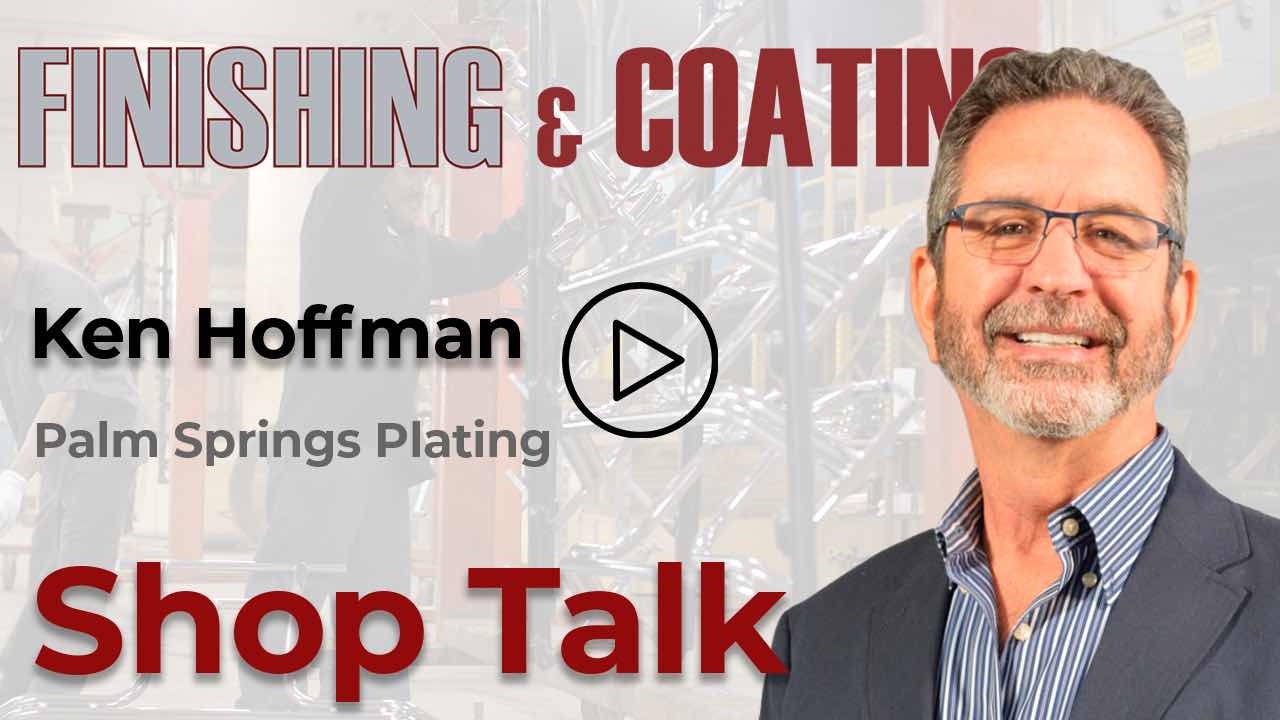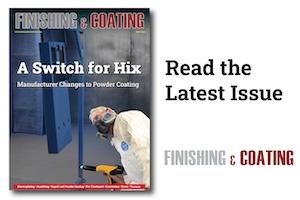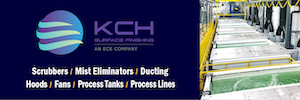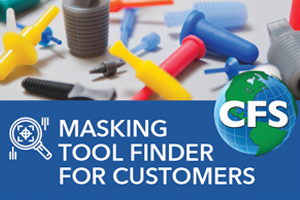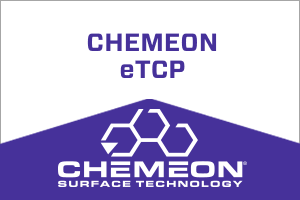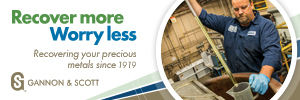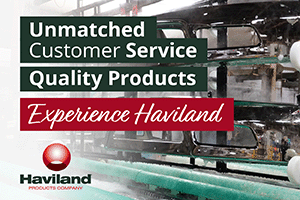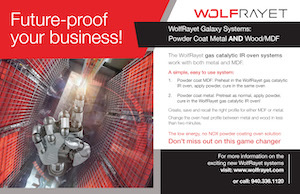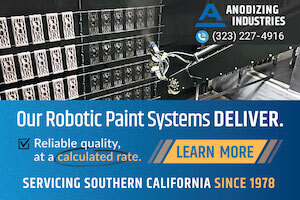Ken Hoffmann was enjoying his life in luxurious Palm Springs, California when the call came that made him take a more serious tone about his life goals.
 Ken HoffmannHe had worked in the construction business, in the restaurant industry, and even was a sommelier for a time in the glitzy Coachella Valley of California. Life was easy and fun more than 30 years ago for the married father of two.
Ken HoffmannHe had worked in the construction business, in the restaurant industry, and even was a sommelier for a time in the glitzy Coachella Valley of California. Life was easy and fun more than 30 years ago for the married father of two.
“I was moving along fine in my life, and my wife called me one day telling me she was pregnant,” Hoffmann recalls. “I can remember it like it was yesterday. I had to really find a business, and I talked to a guy who was a commercial realtor, and he turned me onto a plating shop.”
Of course, Hoffmann knew absolutely nothing about the finishing industry.
Zero Experience, but it Sounded Great
“I said, ‘Dinner plates? I can make dinner plates,’” he recalls telling the realtor, who quickly told him more about the electroplating business that was for sale, and all that it did. Hoffmann, ever eager to learn a new trade — and also needing to support his growing family — said yes and eventually signed the papers to become the owner of Palm Springs Plating.
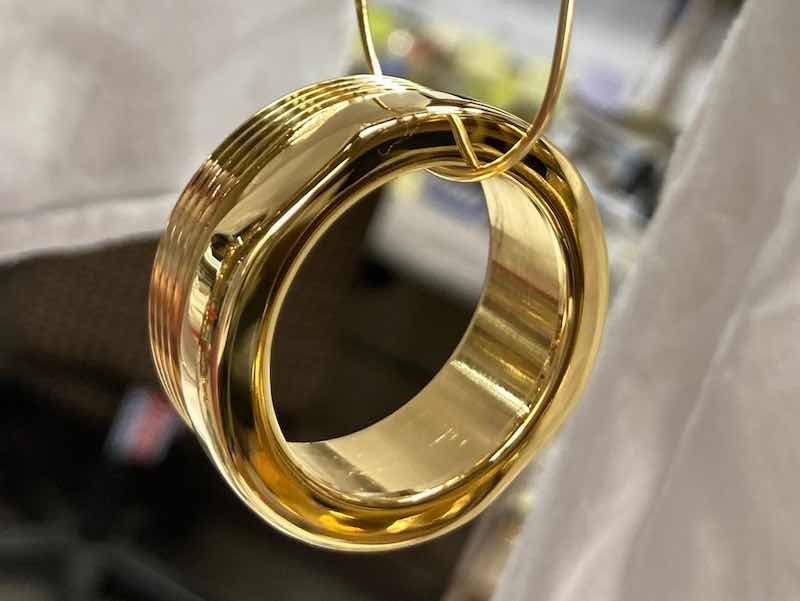 PSP offers chrome, brass, copper, pewter, and other assorted processes, as well as precious metals such as silver and gold, too.“I had zero experience, but it all sounded great, and I thought, ‘What could go wrong?’” Hoffmann says. “It was coming to 1990, and the environmental issues were just rising then, but they were not at the level now. I could shoot the guy now because this is a very difficult business in California.”
PSP offers chrome, brass, copper, pewter, and other assorted processes, as well as precious metals such as silver and gold, too.“I had zero experience, but it all sounded great, and I thought, ‘What could go wrong?’” Hoffmann says. “It was coming to 1990, and the environmental issues were just rising then, but they were not at the level now. I could shoot the guy now because this is a very difficult business in California.”
Indeed, PSP offers chrome, brass, copper, pewter, and other assorted processes, as well as precious metals such as silver and gold, too. But California officials have a target on the back of hard chrome and decorative platers as the California Air Resources Board has plans to phase out existing facilities over the next 10 years.
That has led Hoffmann to start the transition this year from hexavalent chromium to trivalent in order to remain in business as CARB plans to force other operators out of business.
“It’s going to take a lot of regulatory chapters off my head,” he says. “Hex chrome really isn’t a problem when it’s handled well; however, California is making it illegal soon, and so that is what we have to do.”
Help from AQMD on Transition
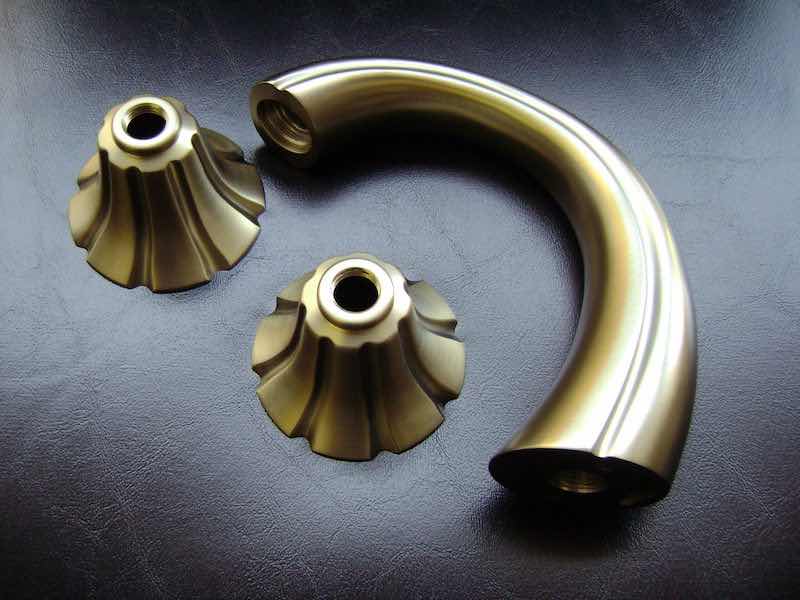 Palm Springs Plating found a comfortable niche in plating plumbing parts for some of the top companies in the industry.In a twist of fate, the South Coast Air Quality Management District (AQMD) is assisting PSP with funds to make the conversion. Those shops that are transitioning to non-hexavalent chromium technologies, such as trivalent chromium
Palm Springs Plating found a comfortable niche in plating plumbing parts for some of the top companies in the industry.In a twist of fate, the South Coast Air Quality Management District (AQMD) is assisting PSP with funds to make the conversion. Those shops that are transitioning to non-hexavalent chromium technologies, such as trivalent chromium
Part of the AQMD program allows up to 90% of eligible costs to be funded for conversion to trivalent chromium. Hoffmann says it was too good of a deal to pass up.
“We have done trivalent in the past and ran it for a short period of time, but it didn’t perform at the level we needed it to,” he says. “We still have it on our permit, but now that they want to take the hex out, I’ll lose my permit for the hex. I don’t know how far they’ll go. They never seem to stop, and that’s the scary part.”
For Hoffmann, aside from the environmental headaches and pressures he must endure, he is still very much enjoying what he does in the plating shop every day. What started out as just two employees and Hoffmann has grown considerably over the past few decades as he has flourished in the opulent Palm Springs area.
“When I first bought the shop, I doubled revenue every year for the first five years,” he says. “We were really banging it out, and I was learning as I went along.”
One of the things that Hoffmann learned to do was not to go cheap on quality, and that has made Palm Springs Plating a known player among OEMs, especially in the plumbing and fixtures sector.
Getting a Foothold in Plumbing and Fixtures
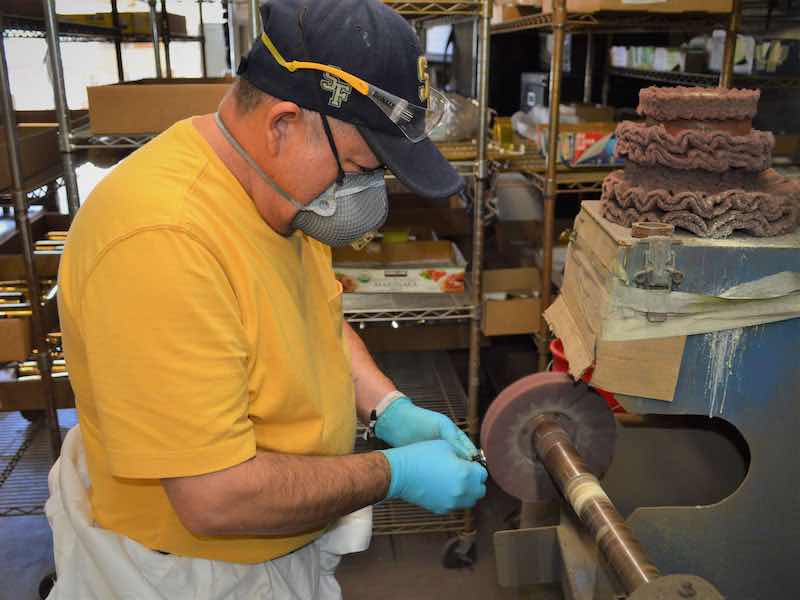 His first customer in the industry was Sidney Altman, a Beverly Hills-based designer of fixtures who engaged Palm Springs Plating on some custom designs and finishes that often found them in some of the most luxurious hotels in the world, including the Four Seasons, Ma Maison Hotel, Caesars Palace, Trump Casino, Beverly Hills Hotel, Ritz Carlton and the Emirates Palace Hotel.
His first customer in the industry was Sidney Altman, a Beverly Hills-based designer of fixtures who engaged Palm Springs Plating on some custom designs and finishes that often found them in some of the most luxurious hotels in the world, including the Four Seasons, Ma Maison Hotel, Caesars Palace, Trump Casino, Beverly Hills Hotel, Ritz Carlton and the Emirates Palace Hotel.
From there, numerous other high-end plumbing and fixture components found their way to the Coachella Valley to work with Hoffmann and his team, including Kallista, Kohler, and American Standard. Soon, Palm Springs Plating found a comfortable niche in plating plumbing parts for some of the top companies in the industry.
Of course, it helped considerably that Hoffmann’s plating shop was located in a resort town just outside of Los Angeles. He used that lure considerably when trying to find new businesses to partner with.
“There are a lot of presidents of companies that have homes out here in the Coachella Valley,” he says. “So that’s a terrific benefit in that they can come and see my shop, and we’ve used that a lot over the years. We say, ‘Come out to see us on a Friday, and then spend the weekend in Palm Springs.’ It worked very well for us.”
Hoffmann inherited just two employees when he started at the 4,000-square-foot Palm Spring Plating: Oscar Navarrete, who is now his Operations Manager, and Juan Garcia, who is the current plating manager. The previous owner stuck with him for a few years to offer guidance, but he was soon on his own.
Re-Inventing the Business Plan
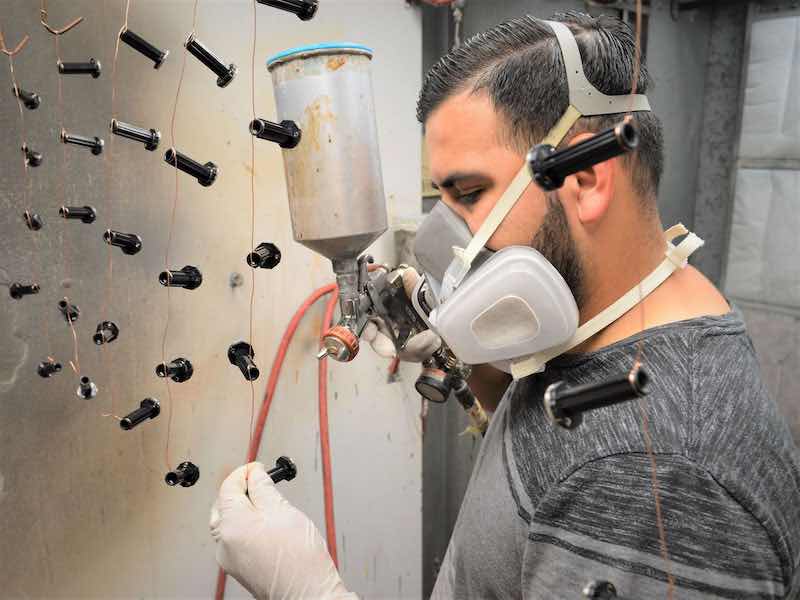 He says he has had “three or four rewrites” of his business since buying it in 1990, including a few recessions that he has weathered and overcome, as well as competition from Mexico, where manufacturers would pull their business from Palm Spring Plating and go south of the border to save money.
He says he has had “three or four rewrites” of his business since buying it in 1990, including a few recessions that he has weathered and overcome, as well as competition from Mexico, where manufacturers would pull their business from Palm Spring Plating and go south of the border to save money.
“I’m $400 a week, and Mexico comes in at $40 a week,” Hoffmann says. “I had to reset myself and become more flexible, have a quicker turnaround, and offer higher quality. And we survived that.”
In the early 2000s, businesses began taking more plumbing and faucet work to China, which again forced Hoffmann to rethink his business strategies.
“I had to reset again because now you are at $4 a week,” he says, adding that while he was working with many large companies in the plumbing industry, they “were exciting to grow with, but they’re not very in tune to their smaller vendors.”
Adherence to Perfection and the Environment
One of the things that have kept Palm Springs Plating at the forefront with many OEMs and manufacturers was Hoffmann’s adherence to quality, especially in the realm of plumbing and fixtures that were used as almost art pieces in some luxurious homes and hotels.
“I just don’t put up with anything not perfect,” he says. “The quality is very important, but then again, the environment is important, too. We’re a zero-waste generator; everything that we generate goes offsite and is manifested and properly taken care of. It was a hard lesson to learn, but you need to sit down and plan it. At one point when I doubled every year, not all the rules were followed like they were supposed to, and we eventually had to step up and do it.”
As Hoffmann and his team transition into the new world of finishing in California — where the state is working to put them out of business, workers are hard to find, and customers are squeezing costs as much as they can — he looks back on a career and says he wouldn’t change a thing about it.
“There’s a miracle to the small businessman,” Hoffmann says. “You cannot define pre-crisis. It’s only as you go through it and who has the right power to stick with it and not give up.”
Visit https://psplating.com




